Wendy Chamberlain: 'There's been a seismic change in Scottish politics'
Wendy Chamberlain loves Happy Valley. The BBC’s Yorkshire-set drama is a world away from her constituency or the wood-panelled halls of Westminster, but as former police officer, it’s all too familiar to the North East Fife MP.
And as much as she feels for Sergeant Catherine Cawood as she wrestles with suspects – something Chamberlain has done herself – there’s something else she admires about the female characters created by screenwriter Sally Wainright. “There are no shits given,” Chamberlain says.
But Chamberlain herself is a woman who knows the value of compromise and cooperation. After all, some of the people she loves most – her husband Keith, her best friend Debbi McCall, the provost of Midlothian – are paid-up SNP members working towards Scottish independence, while she, as the Lib Dem chief whip, is not only dedicated to securing the Union, but to turning the map of Scotland a different shade of yellow.
“There’s lots of stuff we agree on, it’s just this one thing,” she says. “Unless you’re living in a completely sealed box, you’re meeting people regularly who feel differently about the constitutional question than you do.”
Chamberlain’s refusal to box herself into a narrow party-political mindset perhaps relates to the life she lived before politics. Or maybe that should be lives, plural. No professional politician, Chamberlain has been alternately a prospective Tesco manager, a college lecturer and the first female board member of shinty’s Camanachd Association. That’s not forgetting spells with drinks giant Diageo and in military resettlement, or those 12 years in the police.
Chamberlain laughs at how much she’s packed in. “I’ve still done a lot of twatting about on my phone,” she jokes.
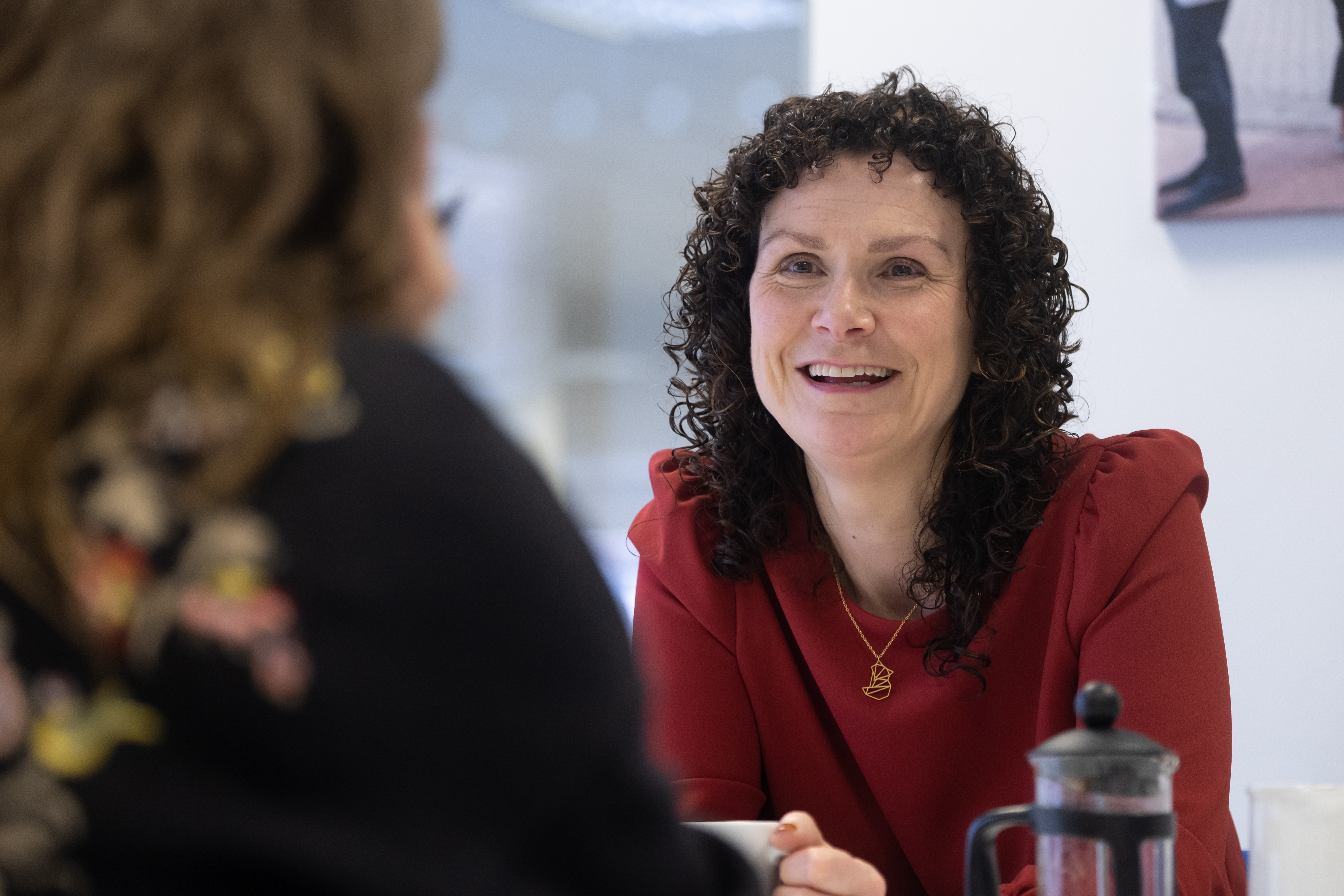
Originally from Greenock on the west coast, Chamberlain’s made her life and work in the east. She lives just outside her constituency – her local MSP is Shirley-Anne Somerville – and has an office by the River Eden in Cupar. She’s so close to Willie Rennie, whose constituency overlaps hers, that she refers to him as her “work husband”. He’s been known to collect her from the hairdressers and fetch her an outfit for the odd black tie do when she’s delayed by parliamentary business.
But while Rennie, the former leader of the Scottish Lib Dems, was first elected in 2006, when a by-election victory took him to Westminster, Chamberlain is just three years into her political career.
When she stood against SNP incumbent Stephen Gethins in the snap general election of December 2019, his majority of just two votes could barely have been smaller. After a concerted campaign, she put more than 1,300 votes between them. The pair met recently when Gethins, now a lecturer at St Andrews University, gave evidence before Chamberlain and her Scottish Affairs Committee colleagues. “At the very least, you want people to respect you in what you do. Stephen and I are good examples of people who try to conduct ourselves in that way,” she says.
“The two-vote narrative could have turned into a very different campaign if we’d chosen to conduct ourselves differently. It’s to his credit.”
Chamberlain’s victory came as her party suffered the loss of its leader, Jo Swinson. She’d led a punchy campaign in which she positioned herself as the next prime minister, but was knocked out of office thanks to a ballot-box drubbing by the SNP’s Amy Callaghan in East Dunbartonshire. Footage of Nicola Sturgeon celebrating, clenched fists raised, went viral. It was a sobering moment for the Lib Dems, triggering the leadership contest that would see Ed Davey succeed Swinson.
While talk of an early general election has subsided for now, Chamberlain says her party is in a campaign-ready condition. “We’ve got a really good background for what a target seat should look like in terms of activity. The obvious challenge for us is that there’s not a national tide that picks us up, or if it does, it does so on a temporary basis. We need to have a very good ground operation. We do that very well in North East Fife, where we’re out three times a week, every week.
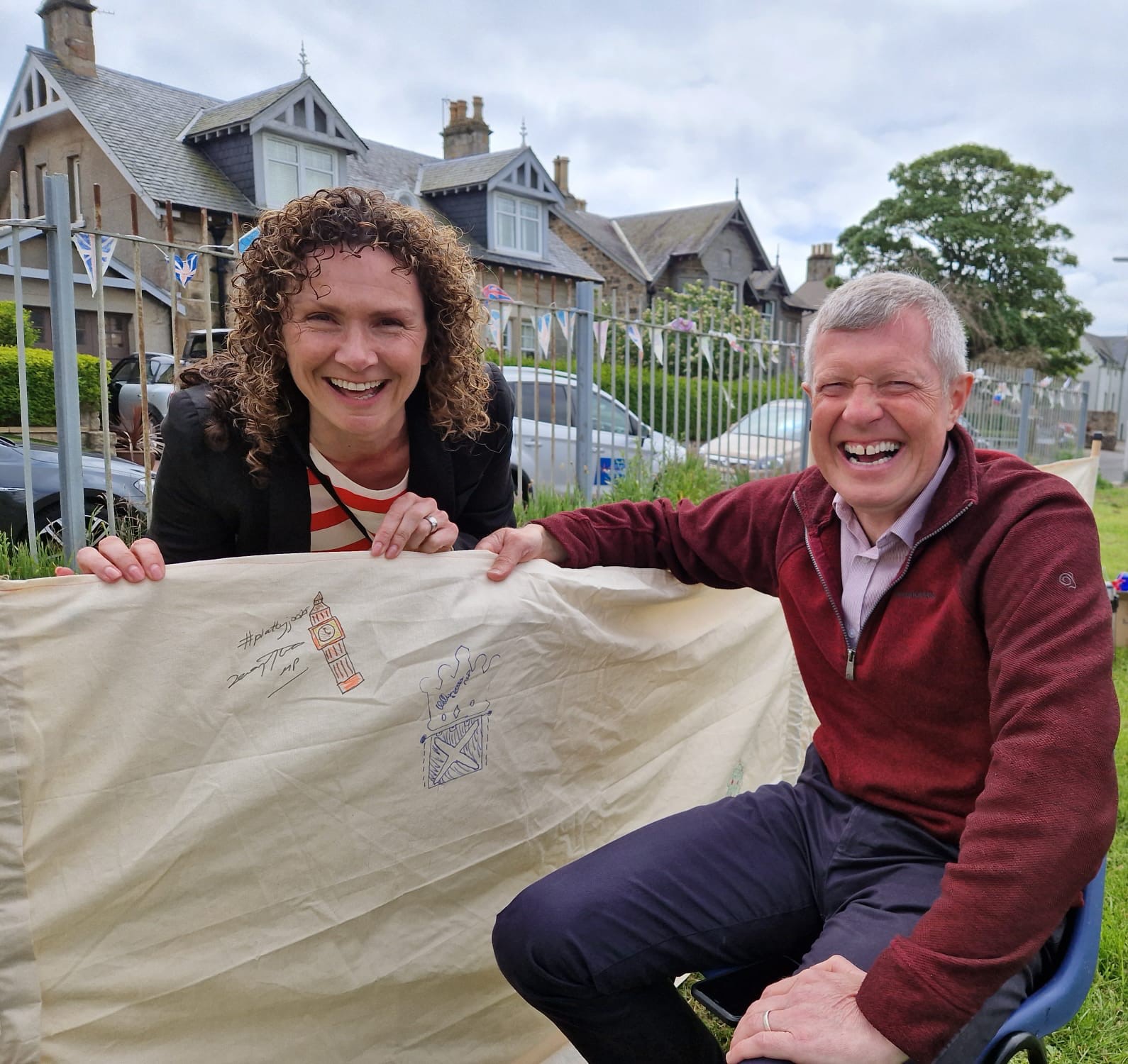
“From a UK perspective, our target seats are largely where we are in second place to the Conservatives. In Scotland, the reality is that in every seat it’s either an SNP incumbent or [the SNP] in second place,” she explains. “I’ll be honest and say it’s probably an easier task for me to be less nuanced with the Conservatives than the SNP. We can agree that the principle of something is good, and it’s the implication and often the centralism where we differ. That’s part of our USP,” she says of the Lib Dems, “that local aspect”.
But, Chamberlain says, the resignation of Nicola Sturgeon could change everything. “There’s been a seismic change in Scottish politics. What that means for the SNP is probably to be worked through.”
Chamberlain describes herself as “a social democrat first and liberal second”. She can now “comfortably” call herself an MP, but still feels “discomfort” if someone refers to her as a politician. And, with boundary changes set to take effect, bringing new areas into her constituency, she’s still working to raise her profile.
“My target is to knock on a door and have someone say, ‘I recognise your hair’,” she smiles. Her tightly coiled coiffure is distinctive, and Chamberlain jokingly compares herself to Queen guitarist Brian May. She has been, she says, “jammy” when it comes to her electoral success. “I feel very lucky. I ended up living less than 20 minutes away from the most marginal seat in the UK, and I went for it.”
‘Going for it’ is what Chamberlain does. Studying English at university, she worked part time in William Low supermarket and, after it was bought over by Tesco, got to the final 100 in a graduate trainee programme then decided it wasn’t for her after being asked to determine what to do if someone slipped on a cabbage.
Customer service aspirations gave way to joining the police service. She went on her first patrol in Edinburgh’s Wester Hailes district at the age of 22. “I went to a domestic with my tutor in Cobbinshaw [House] high rise,” she recalls. “I could hear the rammy behind the door and my tutor called to say we need another unit. The guy comes to the door telling us to fuck off, then his girlfriend comes behind him with a knife, trying to stab him. There was a toddler at the back.
“My tutor used the baton to hit the knife out of her fingers, and the guy then went for my colleague, because however much the couple had been fighting, ‘you’ve just hit my girlfriend’. I ended up wrestling with her, before other colleagues arrived.” The reason for the stramash? “It turned out he had gone out robbing and had assaulted and robbed somebody in the next stairwell over £3 and a Casio watch.”
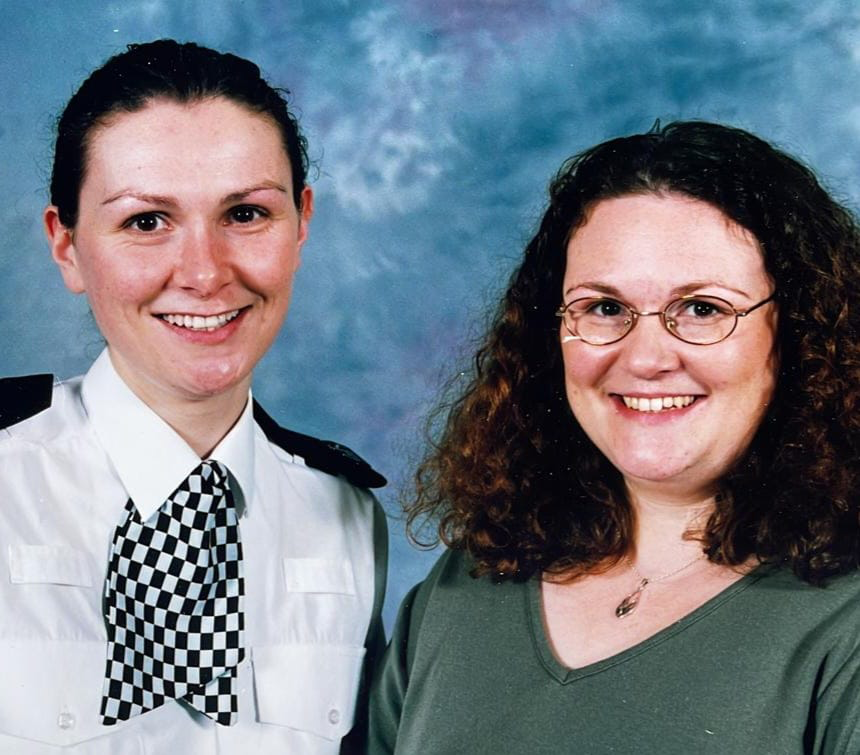
It was in the police that Chamberlain met her husband, and their family includes two daughters, plus step-children who have entered their own police careers. Chamberlain’s family has been to visit her newest workplace, including her parents, who she describes as “small-c conservatives”. She followed her dad into the police, and when she got involved in politics, he told her “you’re aff your heid” before deciding she could be “just as good as those folk on the telly”.
“We were in Strangers bar and Lindsay Hoyle came over to us,” Chamberlain recalls, “then Ian Blackford came over. My mum and dad are not Ian Blackford fans, and I was like ‘be nice’. They were, they had a nice conversation and afterwards I said to my husband, ‘could you have done that if Douglas Ross had come over?’ He said, ‘could I heck’.”
For Chamberlain, building relationships across party lines is a must. There are currently 14 Lib Dem MPs, four of whom are in Scotland – too few to get things done without allies. Chamberlain has found several ways to network, from having “conversations in the tearoom queue” to attending Theresa May’s monthly reception for women in parliament, where she joins people like Kim Leadbeater of Labour and Kirsten Oswald of the SNP. Meanwhile, Wednesday morning football training sees her rub shoulders with Tracey Crouch and Hannah Bardell. At another event, she found common ground with Swinson-felling Callaghan over the “guilt” that came with putting the staff who worked for the MPs they defeated out of a job just before Covid hit.
But it hasn’t all been about building bridges, it’s also been about holding the government to account. Intervening in the Owen Paterson lobbying scandal, Chamberlain proposed a successful “anti-sleaze” amendment to stop MPs from voting on misconduct cases relating to themselves.
There had been outcry when Tory MP Paterson voted against his own suspension after he was found to have broken the MPs’ code of conduct. “A Conservative I know was absolutely livid that they were whipped to protect him,” Chamberlain says. “By the time I’d tabled the emergency debate application, the government were already starting to roll back.”
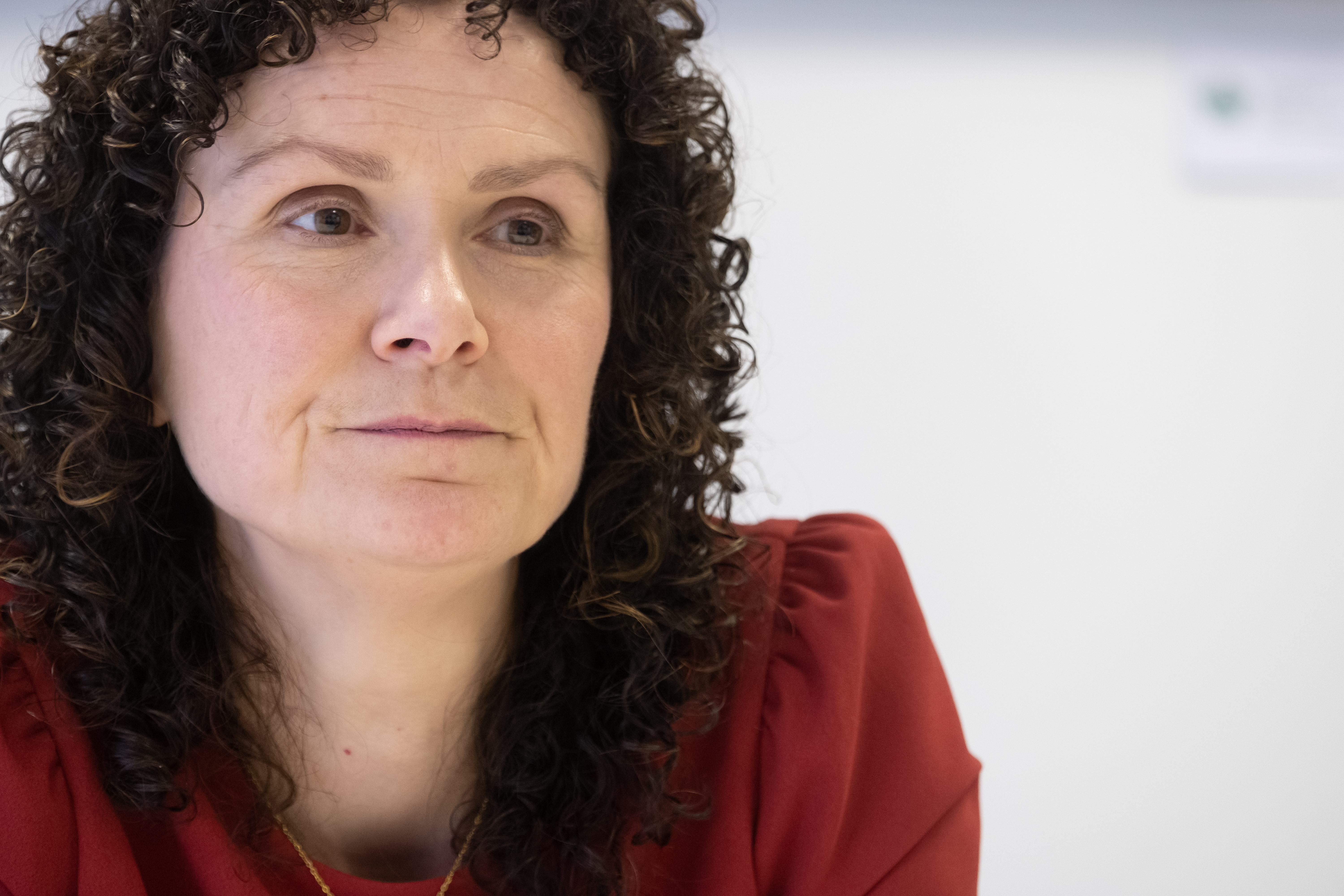
Taking her place in the chamber for the debate, the MP recalls standing behind Labour’s Keir Starmer and “thinking ‘he needs to wait for me before he can speak; isn’t that absolutely mad?’”
But success was not guaranteed and, on the day of the vote, Chamberlain worried a quiet Commons meant there would be too few supporters to carry her proposal through. “It was a bit like that bit in the second Lord of the Rings when they are about to get overrun and the Rohirrim came over the hill with Gandalf, and MPs started to come in with support,” she says.
“We have kept chipping away in terms of the reviews of the code of conduct. If it’s just convention that somebody doesn’t vote on something, well, disciplinary lines only work until someone breaks them.”
Discipline is important to Chamberlain in her chief whip role. “It’s another full-time job on top of the full-time job of being an MP,” she says “because of the amount of time you have to spend in Westminster, but it’s been a leg-up to understand how Westminster works.”
That pragmatism has helped Chamberlain get her Carer’s Leave Bill, which would see workers with caring responsibilities gain the right to one week per year in unpaid leave from their employers, through to stage two in the House of Lords. Winning the ballot to present a bill is another example of how “jammy” she’s been, Chamberlain says, and she wanted to find something that the government would support. In October, the Department for Business, Energy and Industrial Strategy said her bill would benefit “millions of people”. “It’s the first time unpaid carers will have a statutory employment right,” Chamberlain says. “That’s not to be sniffed at. It’s the first step to establishing more rights.
“My focus was on finding what can we actually achieve and being realistic. You find that, and then you campaign on it relentlessly.”
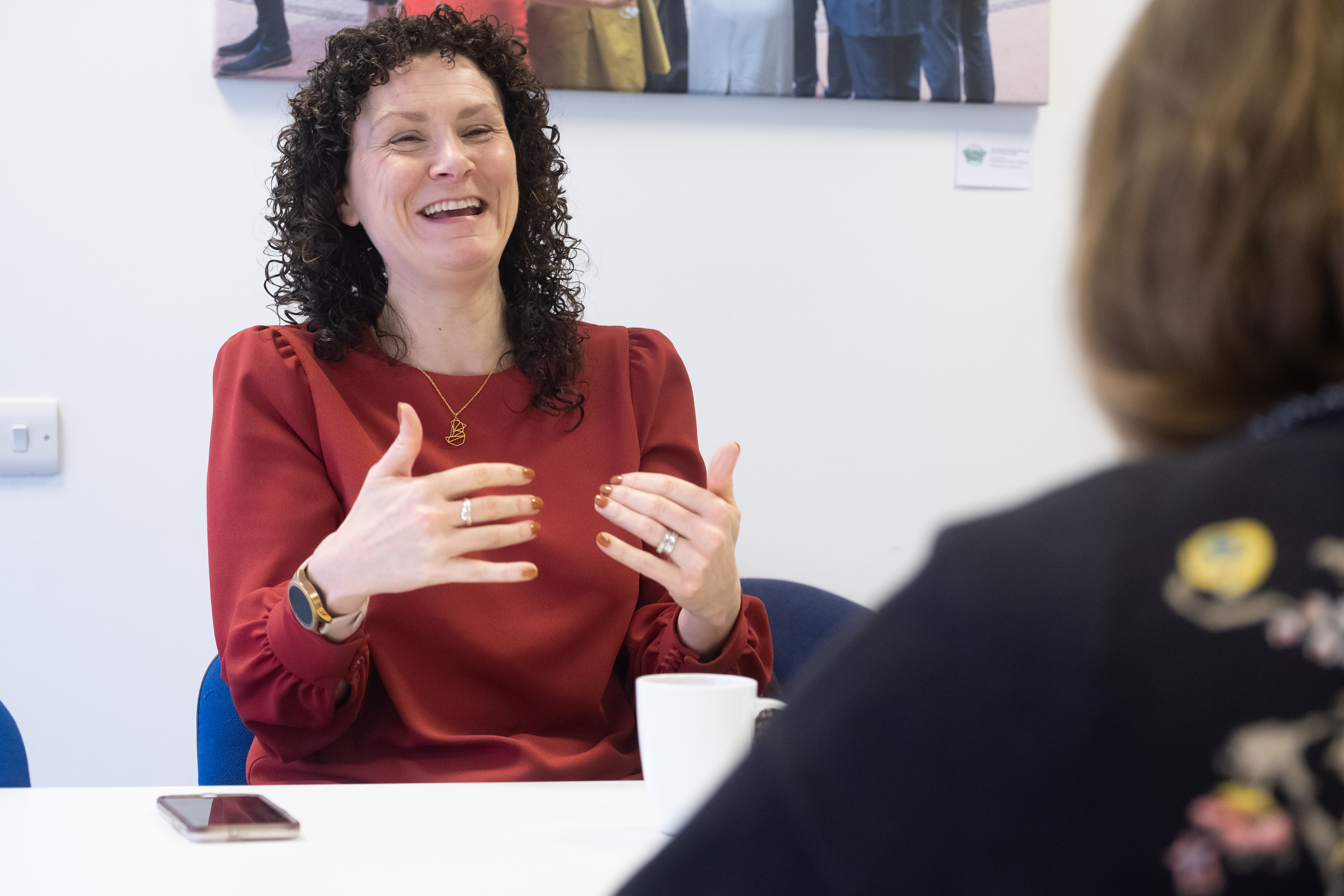
Despite learning the ropes, there’s plenty Chamberlain still can’t fathom about the UK Parliament, and the Conservative party in particular. “I find it incredible that Liz Truss got to where she did; no empathy, no agility or just back to that being a real person. I’ve got no views of grandeur about my own abilities,” she goes on, “but in terms of the basics of being a constituency MP and speaking and listening, I have that. I don’t understand how somebody so lacking in those skills could be in that position.
“We might have a new prime minister, but the appointment of Lee Anderson to the party chair shows you fundamentally that that shift to the right the Conservative party has experienced is there to stay. As a result, they represent a diminishing amount of the population.”
And so Chamberlain senses an opportunity for rival parties such as hers. A pragmatist drawing lessons learned from all of her professional lives, and from the Tory turbulence of recent years, she’s thinking hard about how to position her party for the future.
“For all we say we want truth and honesty and transparency from our politicians,” she goes on, “we also want them to make us feel good about ourselves, our country and our future. Sometimes that makes some of the more difficult messages hard to get across.”
Holyrood Newsletters
Holyrood provides comprehensive coverage of Scottish politics, offering award-winning reporting and analysis: Subscribe